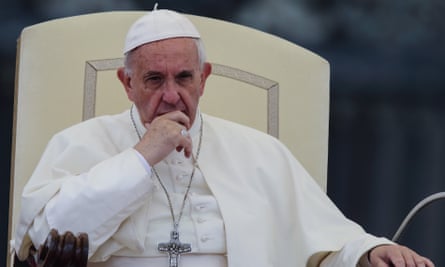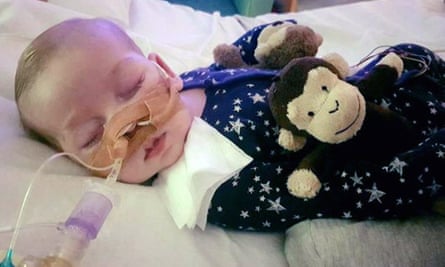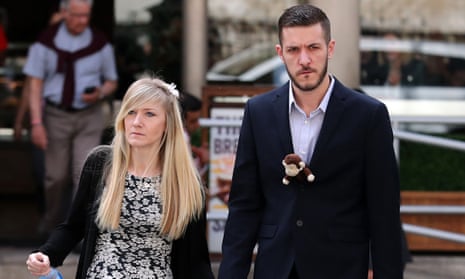Pope Francis is calling for the parents of critically ill baby, Charlie Gard, to be allowed to do everything possible to treat their child.
In a statement on Sunday evening, the Vatican said the pope was following the case of the 10-month-old, who has a form of mitochondrial disease, “with affection and sadness” and was close to his parents: “For this he prays that their wish to accompany and treat their child until the end isn’t neglected.”
Last week, his parents lost their appeal to the European court of human rights (ECHR), the final stage in a long legal fight to take him to the US for trial therapy, meaning Great Ormond Street hospital (GOSH) could withdraw his life support and allow him to die.
On Monday, US president Donald Trump tweeted: “If we can help little #CharlieGard, as per our friends in the U.K. and the Pope, we would be delighted to do so.”
The pope’s intervention is a shift in the Holy See’s position from earlier in the week, when the Vatican’s bioethics advisory panel had noted the need to do whatever helps a patient but also to sometimes accept the limits of medicine.

In a statement on Friday, Archbishop Vincenzo Paglia of the Pontifical Academy of Life, said: “We should never act with the deliberate intention to end a human life, including the removal of nutrition and hydration.“We do, sometimes, however, have to recognise the limitations of what can be done, while always acting humanely in the service of the sick person until the time of natural death occurs.”
The change in the Vatican’s stance took place as demonstrators gathered outside Buckingham Palace on Sunday to protest against the ECHR decision to allow Charlie’s life-sustaining treatment to be withdrawn. In addition his parents, Chris Gard and Connie Yates, were told by the hospital after the ruling in Strasbourg that they would not be allowed to take their son home to die.
GOSH granted the couple more time with their son on Friday but hundreds of protesters still came to the event organised on Facebook to support the couple.
Speaking on Friday, Yates said: “We are really grateful for all the support from the public at this extremely difficult time. We’re making precious memories that we can treasure forever with very heavy hearts. Please respect our privacy while we prepare to say the final goodbye to our son Charlie.”
Charlie Gard suffers from a rare genetic condition and is unable to breathe unaided. He has a form of mitochondrial disease – a genetic condition that causes progressive muscle weakness and brain damage.

His parents, from Bedfont in west London, want to take him to the US to undergo an experimental treatment but doctors at GOSH said that, given Charlie’s condition, the therapy was unlikely to have a beneficial outcome.
British courts ruled that it would be lawful for the hospital to withdraw life-sustaining treatment because it was highly probable Charlie would suffer significant harm if his life was prolonged without realistic prospect of an improvement. They cited established human rights law, which dictates that the rights of a child should take precedence over the rights of a parent.
In the final ruling on Tuesday, the ECHR said it had, by a majority of the seven judges who considered the written arguments, declared the application inadmissible. It “endorsed in substance the approach” taken by the British courts and declared “the decision is final”.
It added: “Consequently, the court also considered that it was appropriate to lift the interim measure.” That measure required doctors to continue providing life support treatment for Charlie.
Responding to the judgment, a spokesperson for Great Ormond Street hospital for children NHS foundation trust said: “Our thoughts are with Charlie’s parents on receipt of this news that we know will be very distressing for them.
“Today’s decision by the European court of human rights marks the end of what has been a very difficult process and our priority is to provide every possible support to Charlie’s parents as we prepare for the next steps.
“There will be no rush by Great Ormond Street hospital to change Charlie’s care and any future treatment plans will involve careful planning and discussion.”
Gard and Yates, who are in their 30s, launched a fundraising appeal to help pay for doctors’ bills in the US. It reached a £1.2m target before the initial high court trial and has now topped £1.3m, attracting more than 83,000 donations.
